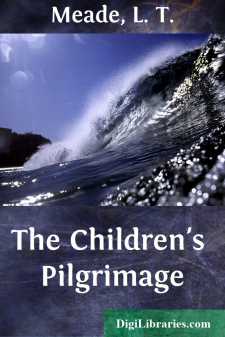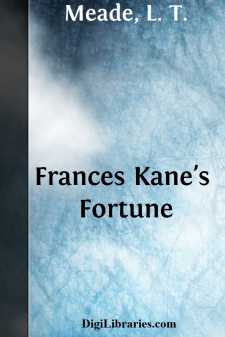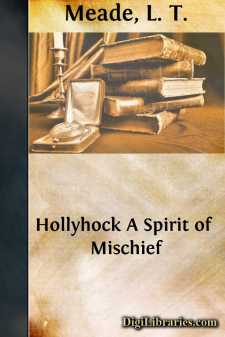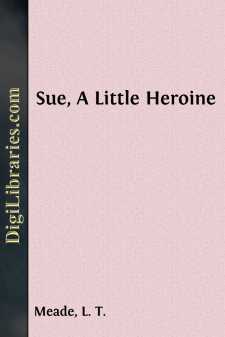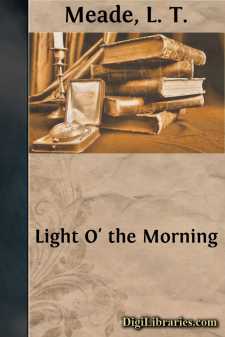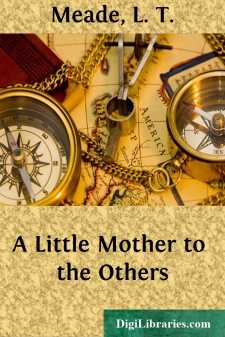Categories
- Antiques & Collectibles 13
- Architecture 36
- Art 48
- Bibles 22
- Biography & Autobiography 813
- Body, Mind & Spirit 142
- Business & Economics 28
- Children's Books 15
- Children's Fiction 12
- Computers 4
- Cooking 94
- Crafts & Hobbies 4
- Drama 346
- Education 46
- Family & Relationships 57
- Fiction 11828
- Games 19
- Gardening 17
- Health & Fitness 34
- History 1377
- House & Home 1
- Humor 147
- Juvenile Fiction 1873
- Juvenile Nonfiction 202
- Language Arts & Disciplines 88
- Law 16
- Literary Collections 686
- Literary Criticism 179
- Mathematics 13
- Medical 41
- Music 40
- Nature 179
- Non-Classifiable 1768
- Performing Arts 7
- Periodicals 1453
- Philosophy 64
- Photography 2
- Poetry 896
- Political Science 203
- Psychology 42
- Reference 154
- Religion 513
- Science 126
- Self-Help 84
- Social Science 81
- Sports & Recreation 34
- Study Aids 3
- Technology & Engineering 59
- Transportation 23
- Travel 463
- True Crime 29
L. T. Meade
L. T. Meade, born Elizabeth Thomasina Meade Smith in 1844, was an Irish author best known for her prolific output of over 300 books, particularly in the genres of children's literature, mystery, and adventure. She was a pioneering figure in popularizing the girls' school story genre and co-authored several early detective novels. Her works often featured strong female protagonists and addressed themes of independence and social issues.
Author's Books:
Sort by:
by:
L. T. Meade
CHAPTER I. "THREE ON A DOORSTEP." In a poor part of London, but not in the very poorest part—two children sat on a certain autumn evening, side by side on a doorstep. The eldest might have been ten, the youngest eight. The eldest was a girl, the youngest a boy. Drawn up in front of these children, looking into their little faces with hungry, loving, pathetic eyes, lay a mongrel dog. The three...
more...
by:
L. T. Meade
THE LETTER. It was a very sunny June day, and a girl was pacing up and down a sheltered path in an old-fashioned garden. She walked slowly along the narrow graveled walk, now and then glancing at the carefully trimmed flowers of an elaborate ribbon border at her right, and stopping for an instant to note the promise of fruit on some well-laden peach and pear-trees. The hot sun was pouring down almost...
more...
by:
L. T. Meade
CHAPTER I. "You are the comfort of my life, Effie. If you make up your mind to go away, what is to become of me?" The speaker was a middle-aged woman. She was lying on a sofa in a shabby little parlor. The sofa was covered with horse-hair, the room had a faded paper, and faded chintz covered the shabby furniture. The woman's pleading words were emphasized by her tired eyes and worn face....
more...
by:
L. T. Meade
CHAPTER I. "You have kept us waiting an age! Come along, Bet, do." "She ain't going to funk it, surely!" "No, no, not she,—she's a good 'un, Bet is,—come along, Bet. Joe Wilkins is waiting for us round the corner, and he says Sam is to be there, and Jimmy, and Hester Wright: do come along, now." "Will Hester Wright sing?" suddenly demanded the girl who...
more...
by:
L. T. Meade
THE CHILDREN OF THE UPPER GLEN. There was, of course, the Lower Glen, which consisted of boggy places and endless mists in winter, and a small uninteresting village, where the barest necessaries of life could be bought, and where the folks were all of the humbler class, well-meaning, hard-working, but, alas! poor of the poor. When all was said and done, the Lower Glen was a poor place, meant for poor...
more...
by:
L. T. Meade
CHAPTER I. BESSIE, ALICE, GWIN, ELMA. Bessie! Bessie! "Yes, mother," replied Bessie Challoner. "You'll be late for school, child, if you are not quick." "Bessie!" shouted her father at the top of his voice from below stairs."Bessie; late as usual." "I am really going, father; I am just ready," was the eager reply. Bessie caught up her sailor hat, shoved it...
more...
by:
L. T. Meade
CHAPTER I. BIG BEN'S VOICE. Sue made a great effort to push her way to the front of the crowd. The street preacher was talking, and she did not wish to lose a word. She was a small, badly made girl, with a freckled face and hair inclined to red, but her eyes were wonderfully blue and intelligent. She pushed and pressed forward into the thick of the crowd. She felt a hand on her shoulder, and...
more...
by:
L. T. Meade
CHAPTER I. NORA. "Why, then, Miss Nora—" "Yes, Hannah?" "You didn't see the masther going this way, miss?" "What do you mean, Hannah? Father is never at home at this hour." "I thought maybe—" said Hannah. She spoke in a dubious voice, backing a little away. Hannah was a small, squat woman, of a truly Irish type. Her nose was celestial, her mouth wide,...
more...
by:
L. T. Meade
CHAPTER I. THE POOR INNOCENT. The four children had rather peculiar names. The eldest girl was called Iris, which, as everybody ought to know, means rainbow—indeed, there was an Iris spoken of in the old Greek legends, who was supposed to be Hera's chief messenger, and whenever a rainbow appeared in the sky it was said that Iris was bringing down a message from Hera. The Iris of this story was a...
more...
by:
L. T. Meade
EARLY DAYS. The three girls were called after flowers. This is how it came about: When Primrose opened her eyes on the world she brought back a little bit of spring to her mother's heart. Mrs. Mainwaring had gone through a terrible trouble—a trouble so dark and mysterious, so impossible to feel reconciled to, that her health had been almost shattered, and she had almost said good-bye to hope....
more...


